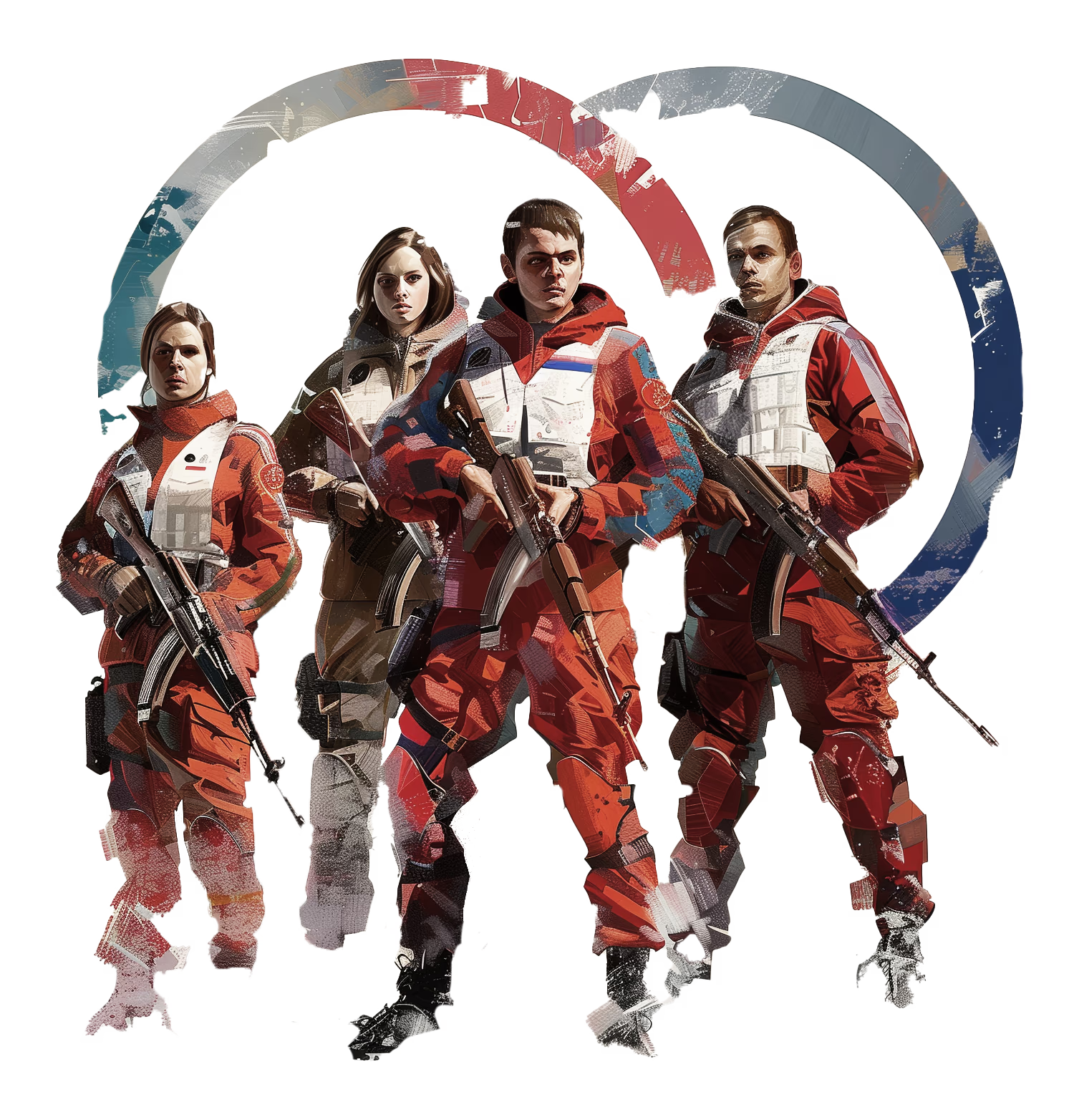"Our recent exhibitions abroad are a powerful cultural offensive. If you will, a sort of special operation. [...] And no one can hinder our advance..." These words by Mikhail Piotrovsky, the director of the Hermitage, spoken in an interview with Rossiyskaya Gazeta in June 2022, vividly illustrate how in Russia, culture is used not to strengthen international understanding and cultural exchange, but to enhance geopolitical influence, promote its own interpretation of world history, and increase loyalty to the Russian state's position.
To achieve these goals, Russia uses not only culture. Another powerful tool of propaganda and demonstration of supposed superiority, from the Soviet era to the present day, is sports.
In Soviet times, successes on the international stage served as proof of the superiority of the socialist system. During the Cold War, victories by Soviet athletes in the Olympic Games and other international competitions were perceived and presented as a triumph of ideology and the system.

A Soviet poster.
The inscription on the poster: All world records must be ours
The inscription on the poster: All world records must be ours
In modern Russia, sports achievements continue to play a key role in state propaganda. Vladimir Putin views sports primarily as a means of influence. He actively uses Olympic victories to strengthen domestic support and attempt to improve the country's international image. Putin personally participates in awarding athletes, emphasizing the significance of their victories. Each major sporting event is turned into a spectacle designed to showcase Russia's strength and unity, as was the case with the 2018 FIFA World Cup. At that time, many turned a blind eye or forgot that the tournament was being held in a country directly involved in the downing of Malaysian Airlines Flight MH17, which was flying from Amsterdam to Kuala Lumpur. Due to Russia's military actions in Ukraine, the plane was shot down by a Russian Buk missile system, killing 298 people. Russia successfully turned the World Cup into a propaganda campaign aimed at diverting attention from the military and other crimes committed by Russian authorities.

The terrorists of the self-proclaimed DPR in front of the downed Boeing MH17 aircraft.
The 2014 Olympic Games in Sochi were a showcase and an attempt to demonstrate to the world a new, strong, and confident Russia. By investing billions of dollars in infrastructure and the organization of the games, the Russian leadership aimed not only for sporting success but also to create a powerful symbol of national revival. This was not a sports investment, but a political one.
The Games took place against the backdrop of the annexation of Crimea, when Russia openly violated international law and invaded the territory of a sovereign state. The preparation and hosting of the Sochi Olympics coincided with the militarization and intensification of aggressive policies. As a result, the Olympics became not a sporting event, but a political act, demonstrating a disregard for international norms and rules.

Putin opens the 2014 Sochi Olympics, which ended with the annexation of Crimea.
Grigory Rodchenkov, the former head of the Moscow Anti-Doping Laboratory, exposed this system by revealing the widespread swapping of Russian doping samples during the 2014 Olympics. His testimony shocked the international community, sparking a wave of outrage and distrust towards Russian sports. An investigation conducted by WADA confirmed the scale and systemic nature of the doping manipulations. Over a thousand Russian athletes across 30 sports were involved in this program, leading to not just a scandal, but the unmasking of an entire state-sponsored machine of deception.
The documentary film Icarus about the international scandal involving the falsification of doping samples by Russian athletes.
In response to the accusations, Russian officials denied all the allegations, calling them politically motivated attacks on the country. Instead of expressing remorse and correcting their mistakes, the authorities continued to insist on their innocence, which only highlighted their willingness to resort to any subterfuge to achieve their goals.
Even after the exposure, the "victories" of Russian athletes were presented as further proof of the superiority of the Russian nation, while the investigations and doping scandal were portrayed by propaganda as the world's envy of Russian successes. Russian media claimed that the international community was trying to take away honestly earned medals because it was incapable of winning them on its own.
At the upcoming 2024 Olympic Games in Paris, Russian athletes will be allowed to participate under a neutral flag. This decision was made against the backdrop of Russia's ongoing war against Ukraine. Despite their neutral status, these are still Russian athletes, and among them are those who openly support the war against Ukraine. Russian athletes Dinara Kudaeva, Natalia Malysheva, Olga Khoroshavtseva, and Belarusian athlete Iryna Kurachkina openly support the invasion of Ukraine and the annexation of its territories.
Diana Kudaeva's Instagram post about her father, who fought on the side of Russia against Ukraine.
The participation of such athletes in the global Olympics raises profound ethical and moral questions. Such a precedent does not contribute to isolating Russia; on the contrary, it demonstrates that a country engaged in war can still have a voice on the world stage. This implies that the criminal Moscow regime will continue its crimes, hiding behind a peaceful facade of "big" sports and "great" culture.
